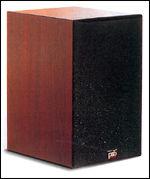| Columns Retired Columns & Blogs |
LATEST ADDITIONS
|
Apr 16, 2000 |
0 comments
Conventional wisdom has it that older audiophiles are not being joined by young 'uns. We're curious to test the theory online.
How old are you?
1-10 years old
1% (3 votes)
11-15
1% (3 votes)
16-20
4% (20 votes)
21-25
12% (58 votes)
26-30
14% (69 votes)
31-40
26% (126 votes)
41-50
31% (148 votes)
51-60
9% (44 votes)
61-70
2% (8 votes)
71-80
0% (1 vote)
Over 80
0% (2 votes)
Total votes: 482





